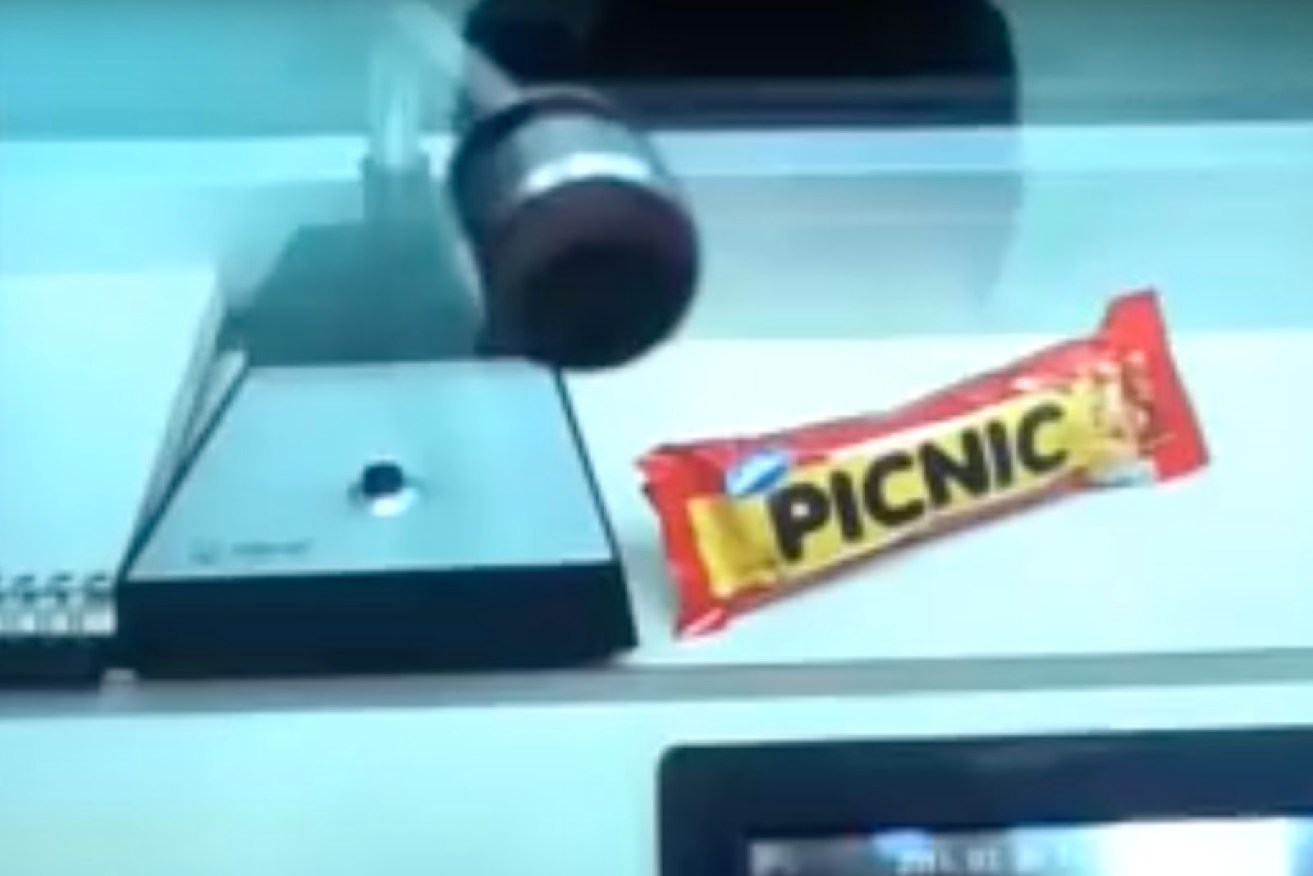Chocolate advert pulled for ‘vilifying’ Indian people

The advertisement was found to be perpetuating stereotypes. Photo: Getty
Cadbury parent company Mondelez Australia has been forced to pull a television advertisement for its Picnic chocolate bar, after the advertising watchdog ruled the commercial portrayed a negative stereotype of Indian people.
The ad, which was broadcast on free-to-air TV and is part of the brand’s “Obey your mouth” campaign, features a man reading out flight departure details into a microphone at an airport.
While the advertiser told the Advertising Standards Board the ad is intended to be “light-hearted” and “humorous”, the viewer who complained about the ad said it “exploits the often used caricature of the ethnic stereotype; the stereotypical Indian accent with the cliché Indian caricature demeanour”.
“There are more than 147,000 Indians residing in Australia, yet we don’t see Indians ever being portrayed on commercial Australian television … as doctors, engineers, lawyers, etc speaking in Australian accents, mixed accents and so on,” the complainant said.
“Instead, on the incredibly rare occasion that an Indian is seen on Australian television, he/she is portrayed in the most stereotypical and offensive manner.
“One member of my family actually asked ‘why do Australians always make fun of our accents if we’ve ever seen on TV?’”

A previous, self-deprecating, Picnic advertising campaign.
The complainant was also concerned with the ad’s use of exaggerated facial expressions on the man who is reading out the flight details.
“When attending speech therapy I came across people with severe facial grimaces just like in the Cadbury advertisement,” they said.
“Advertisements like this can undo all the good that has been done, because stutterers can mimic and remind themselves of bad occurrences.”

Indian people contribute to society as doctors, lawyers and other professionals, yet they are rarely seen in that capacity on television. Photo: Getty
In response to the complaint, Mondelez said the TV commercial (TVC) was “designed to appeal to our customers and in no way intended to offend or insult”.
“The TVC aims to bring to life in a joyful and light-hearted way, the concept of our mouth craving for certain things at certain times, and in a humorous manner, suggests we obey these cravings,” the company said.
Mondelez said it conducted “extensive consumer research” with a representative sample of viewers for the campaign and “during this process, the research did not suggest any ‘insulting’ or ‘offensive’ reactions [or] themes”.
The Advertising Standards Board said including a man of possibly Indian origin in the ad reflects the diversity of Australian culture and a minority of the board’s members did not consider the man’s ethnicity to be a focus of the ad.
However, a majority of the board’s members considered the ad “depicted a man, on account of racial background, in a negative manner”.
As a result, the board ruled the ad breached section 2.1 of the advertising code of conduct by portraying or depicting material that “discriminates against or vilifies a person or section of the community on account of race”.
Mondelez said while the company is disappointed, it accepts the board’s decision.
“The ad has been off air for a number of weeks now and will not return,” the company said.
Racial stereotypes in advertising ‘problematic’
Dr Lauren Rosewarne, an advertising expert and senior lecturer at Melbourne University, told SmartCompany this morning it’s time advertisers moved on from referencing racial stereotypes in advertising.
“In 2016, it’s wasted energies to debate whether racial stereotypes are problematic,” says Rosewarne.
“This issue has already been decided and such depictions – including of American Indians – are widely considered problematic.
“Therefore, when a company decides to use such images in their advertising, not only is the company exposed as insensitive and lacking cultural awareness, but the extent to which their marketing is uncreative and old-fashioned is exposed.”
SmartCompany contacted Mondelez Australia for further comment but did not receive a response prior to publication.
This story first appeared on Smart Company








